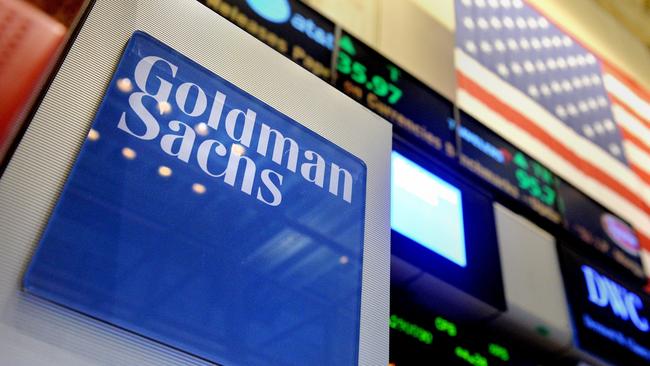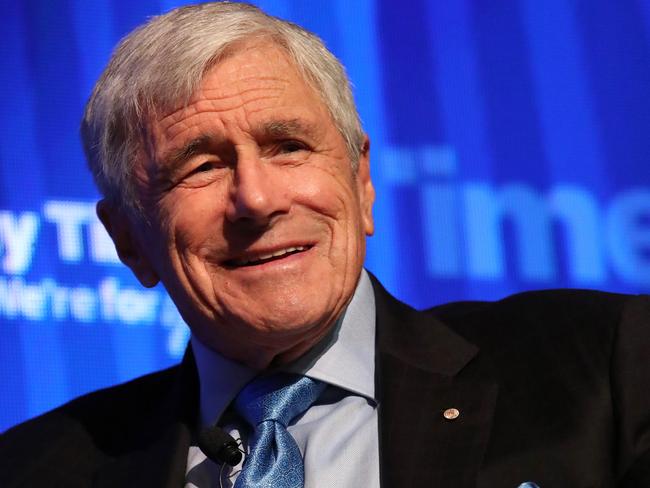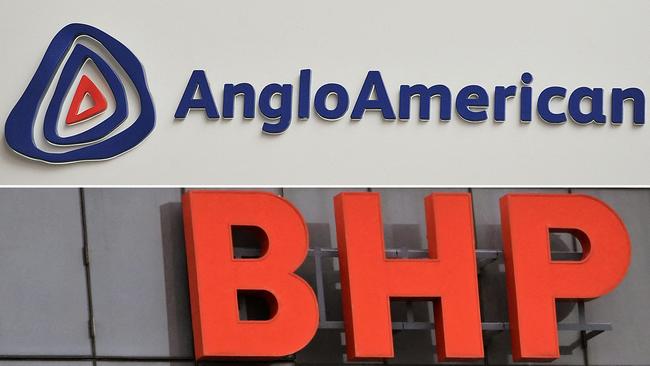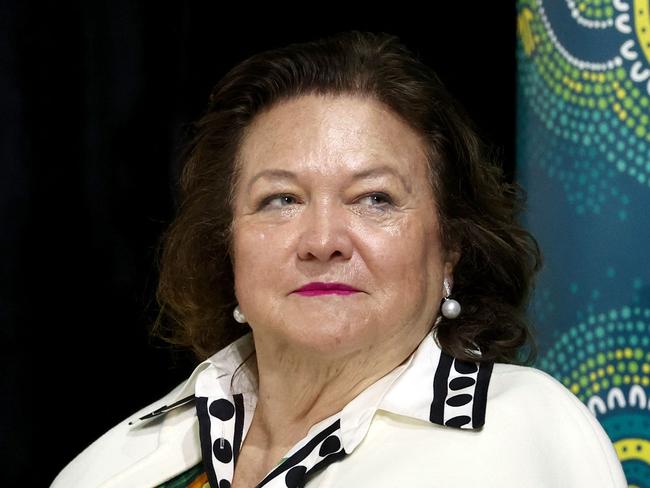
UBS and Goldman Sachs have emerged as the winners of 2024 when it comes to advisory roles for investment banking and more specifically mergers and acquisitions in Australia.
And both banks are expecting that next year will be even more buoyant when it comes to transactional activity.
Goldman Sachs co-head of investment banking for Australia and New Zealand, Nick Sims, says while the sale of Airtrunk (a data centre giant that was offloaded for $24bn to Blackstone and its backers) was the largest deal, there were a number of cross border transactions, and the activity was spread reasonably evenly across various sectors.
According to data from LSEG, UBS maintained its top position for Australian investment banking fees from completed deals this year, while Goldman Sachs was in second place.
With many of the high profile transactions, UBS was involved.
The UBS Australia and New Zealand co-head of mergers and acquisitions, Jon Mant, said its standing in the league table came after it was involved in a significant number of public company takeovers, asset sales and complex corporate restructures.
“There has been a significant level of public company takeover activity this year, including large cross-border transactions,” he said.
“Corporate clients and financial sponsor clients have been active in sale processes to divest businesses this year across a range of sectors.”
For announced mergers and acquisitions, Goldman Sachs was first, advising on 32 deals worth $US40bn after reaching eighth place last year, ahead of Macquarie Capital with 36 deals worth $US34bn.
Much of the Goldman Sachs success centred on its advisory roles for two of the largest deals for this year – working as the adviser for Airtrunk along with Macquarie Capital, and also, along with Morgan Stanley, working for Anglo American, which sold its Australian steelmaking coal mine portfolio to Peabody Energy for $5.8bn ($US3.8bn).
Other big deals worked on by Goldman Sachs included Ansell’s $973m ($US640m) purchase of Kimberly-Clark’s Personal Protective Equipment business and Orica’s $1bn ($US640m) purchase from Cerberus Capital of Cyanco Intermediate in February.
“We are the leading mergers and acquisitions adviser globally, but we have a very strong global network,” Mr Sims said.
“We have the ability to help clients sell an Australian asset to a global party or advise an offshore client into Australia, given we have a very deep and broad network into Australia.
“I think that is just definitely one of our strengths.”
Mr Sims said this year saw a lot of private transactions with private capital.
“Cross border for a long time has been a significant part of our market, and that has been pretty evident too.”
Mr Sims said private groups buying ASX listed companies would likely continue next year, as private equity continues to deploy capital.
But he said Australia’s biggest listed companies have been also looking to grow and build offshore and do other things.
For 2025, Mr Sims said he expected activity to increase.
“What is evident in the data is 2023 was a trough both locally and globally in terms of mergers and acquisitions after 2021 being a very active year and 2022 was still strong, but it definitely troughed in 2023 and this year it picked up.
“But history tells you that the M&A cycle tends to pick up on a two or three or maybe even four-year period.”
Mr Sims said that he would expect this next year, and discussions being had with clients and its pipeline backed this up.
Already, Goldman Sachs is working on a sale for Affinity Equity Partners of Scottish Pacific for 2025 to name one of its sell side mandates.
Big deals of 2024
Mr Sims also said that the activity was also very spread out across the market for 2024.
The industrial sector was one of the more active parts of the market for M&A, particularly in building materials.
UBS advised CRH on its acquisition of AdBri, CSR on Saint-Gobain’s takeover of the business, as well as Boral, which was bought by the Stokes-backed SGH Ltd and Cement Australia, which bought BGC for close to $800m.

Fletcher Building sold its Tradelink unit in August for $170m to pay down debt.
Then in September, packaging company Orora took advice from UBS when selling its US packaging solutions company to Clayton Dubilier and Rice for $1.8bn, including debt, as did Amcor with its deal to buy global packaging rival Berry for $13bn in November, in a deal where Goldman Sachs was also advising Amcor.
The Carlyle Group also purchased Waste Services Group for $1.2bn in December after PEP embarked on a $1bn-odd acquisition of Singapore Post’s Australian business, which included Freight Management Holdings, Couriers Please and Border Express.
Bain Capital bid for automotive after parts company Bapcor in the middle of the year, but later walked away.
Korea’s Hanwha bid for ship builder Austal, as confirmed in April, but later abandoned its bid after it was rejected.
MMA Offshore was purchased by Cyan Renewables.
In resources, BHP emerged as a bidder for Anglo American in April, before Anglo American moved to offload its coal mines to Peabody Energy after fending off the $56bn offer, and Rio Tinto bought Arcadium Lithium in October for over $9.9bn.

The UBS-advised Alcoa also bid $4bn for the ASX-listed Alumina in a scrip offer that was voted through in July.
In November, billionaire Gina Rinehart bought Chris Ellison’s oil and gas assets in Western Australia for $1.1bn and Northern Star in December announced a $5bn buyout proposal for fellow gold miner De Grey Mining in December.

The surging demand for uranium also saw Paladin’s share price soar, providing it momentum to buy Canada’s Fission Uranium for $1.5bn in June.
Gold miner Westgold also embarked on a $2.2bn merger with Karora Resources in April, while Newmont embarked on asset sales, some inherited through its $24bn Newcrest acquisition, and achieved proceeds $US1bn higher than expected.
Woodside also bought US business Tellurian for $1.8bn, and in December embarked on an asset swap with Chevron.
A deal for Whitehaven, advised by UBS, to buy BHP coal mines also completed this year.
Data centres were a dominant theme in infrastructure, where after the sale of Airtrunk, David Di Pilla’s HMC Capital snapped up over $2bn of assets ahead of its December listing of DigiCo REIT.
However, another big deal involved TPG Telecom selling its fibre network infrastructure assets to the Macquarie-backed Vocus Group for $5.25bn in October.
There were also stakes sold in the EastLink toll road business and Gold Coast airport owner Queensland Airports.
In financial services, Pacific Equity Partners this month bid $1.2bn for SG Fleet, while Insignia Financial rebuffed a $2.7bn buyout offer from Bain Capital.
Regal bid for rival asset manager Platinum but later walked away after its offer was rejected, and Kohlberg Kravis Roberts agreed to buy Perpetual’s Corporate Trust business in May for $2.2bn, although the deal is yet to complete with a larger-than-expected tax charge expected to derail the transaction.
Goldman Sachs was one of Perpetual’s advisers.
Ardonagh bought PSC Insurance for $2.26bn.
In Healthcare, Healius sold its diagnostic imaging business to Affinity Equity Partners for $965m, while a prolonged battle for Pacific Smiles ended with Genesis Capital gaining control of the listed dental care chain and Sonic Health Care bought a $700m business LADR Lab Group in Germany in December and PEP was poised to buy half of $1bn aged care business Opal.
The UBS-advised APM was bought by Madison Dearborn for $1.3bn in June, while Integral Diagnostics and Capitol Health embarked on a merger the same month.
Real estate was relatively quiet, as Charter Hall Retail REIT embarked on a hostile bid for Hotel Property Investments and finally gained majority control in December and Lendlease sold its Communities business to Stockland for $1.3bn.
REA Group bid for British rival Rightmove for over $10bn, but its offer was rejected.
Consumer and agriculture saw transactions involving Select Harvest, Elders, Costa and Accolade Wines buying assets off rival Pernod Ricard.
And in retail, Solomon Lew’s Premier Investments embarked on a deal with Myer to sell the department store chain its brands.
DataRoom is taking a break and will be back on January 28, 2025. The column would like to thank all of its contributors, readers and supporters for all the input and interest during 2024. On behalf of all the team at The Australian, Merry Christmas and all the very best for the holiday season. See you in the new year.




To join the conversation, please log in. Don't have an account? Register
Join the conversation, you are commenting as Logout